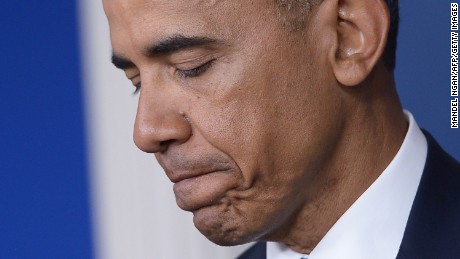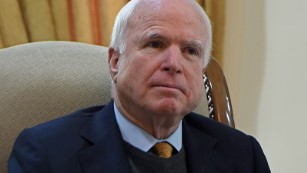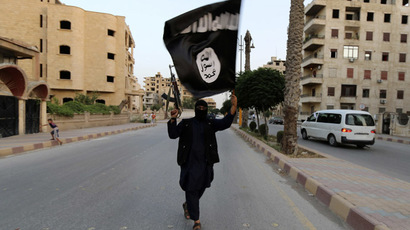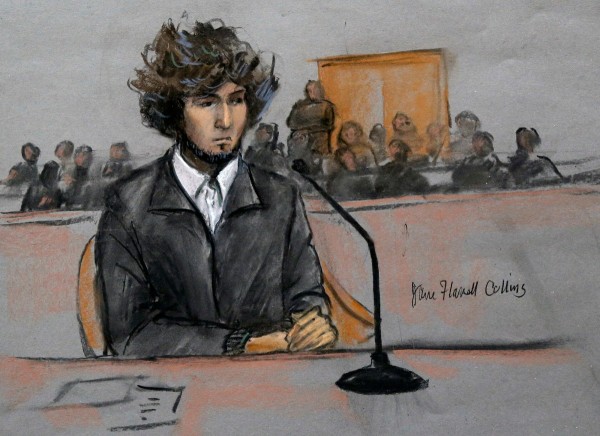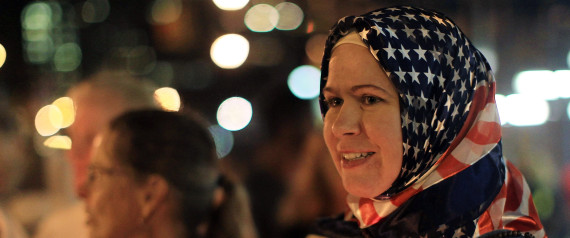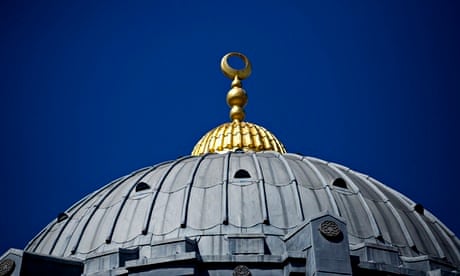In
an extraordinary moment, Obama appeared Thursday in the White House
briefing room to apologize for the accidental killings of an American
and an Italian hostage in an attack on an al Qaeda compound on the
Afghanistan-Pakistan border.
The
deaths of U.S. hostage Warren Weinstein and Italian Giovanni Lo Porto
were an agonizing personal blow to Obama and White House and CIA
counterterrorism officials, who were forced to confront the horrifying
reality that as a result of their actions, the United States killed two
innocent captives.
"It is a cruel and
bitter truth that in the fog of war generally, and our fight (against)
terrorists specifically, mistakes, sometimes deadly mistakes, can
occur," Obama said.
But the killings
also have political and policy implications. It was a serious jolt for
the drone war program, which is a bedrock of his counterterror legacy.
They raised questions of whether U.S. covert agencies had done
absolutely everything they could to ensure that no civilians were in the
path of the drone strikes or whether the CIA was guilty of another
intelligence failure.
The
methodology of Obama's campaign against Islamic extremism -- including
strikes to kill unidentified suspected militants -- and the risks
inherent in basing military targeting decisions on the imperfect science
of intelligence will also face new scrutiny.
The
death of Weinstein also will supercharge a controversy about whether
the United States, which refuses to negotiate with al Qaeda and ISIS for
the release of most detained Americans, does enough to find and bring
home U.S. hostages.
In a political
sense, the tragedy handed the administration a new national security
crisis at a time when Obama's foreign policy is already under assault
from Capitol Hill critics and public alarm is rising over the threat
from groups like ISIS.
Four years after
the stunning special forces raid that killed Osama bin Laden, Obama's
national security legacy is being called into question on multiple
fronts. The latest episode comes after a failed raid to free U.S.
hostages in Syria, a controversy over a Taliban prisoner swap to free a
U.S. soldier and the collapse of the Yemeni government, a vital U.S.
partner in the fight against al Qaeda in the Arabian Peninsula.

EXPAND IMAGE
Obama,
in his determination to end U.S. land wars in the Middle East and South
Asia, significantly escalated the drone program put in place by the
Bush administration and has carried out hundreds of strikes in the
lawless border regions of Afghanistan and Pakistan in a classified
program that top officials rarely discuss publicly.
Indirectly,
the deaths of the two hostages in January, which were only made public
Thursday, can be traced back to that fateful presidential decision.
Grief
was etched into Obama's face as he made the dramatic announcement, one
of the lowest points of a presidency scarred by perpetual crises and
marked by his effort to put the war on terror on a sustainable footing.
'No words' to express loss
"I
realize that there are no words that can ever equal their loss," Obama
said in a somber appearance that recalled his grief-stricken comments
from the same podium after the Newtown school massacre in December 2012.
"As
President and as commander-in-chief, I take full responsibility for all
our counterterrorism operations, including the one that inadvertently
took the lives of Warren and Giovanni," Obama said in a grave tone. "I
profoundly regret what happened."
The
President did not specifically sign off on the operation that killed
Weinstein, but the White House said it was conducted in line with
procedures he has put in place to regulate counterterrorism operations.
U.S.
intelligence agencies had been spying for months from the air on the al
Qaeda hideout at an undisclosed location, but they had seen no sign
that Weinstein and Lo Porto were being hidden in the building.
One
key question that Obama will face -- and one that may emerge from
reviews the White House and members of Congress say they will mount --
is whether the deaths of civilian hostages were an unavoidable accident
or whether the intelligence community committed serious errors.
"My
own instinctive reaction, without having a huge number of facts in
front of me, is that if you are striking terrorists using military force
for many years in a row, then something like this unfortunately becomes
almost a statistical inevitability," said Daniel Benjamin, formerly the
top counterterrorism adviser to then-Secretary of State Hillary
Clinton, who is now at Dartmouth College. "It is very hard to avoid."
The
fact that it has been deemed too dangerous to put American operatives
on the ground in the lawless tribal regions of Pakistan and the reality
that U.S. anti-terror operations are conducted from the air introduces a
high degree of risk. Intelligence agencies can never know for sure who
is being targeted, and civil liberties groups have long complained about
the randomness of the attacks that have killed significant numbers of
Pakistani civilians.
Officials refuse
to give figures for the number of attacks. But the Bureau for
Investigative Journalism estimates there have been more than 400 U.S.
strikes in Pakistan, which have killed between 423 and 962 bystanders
along with hundreds of suspected al Qaeda operatives.
Two al Qaeda operatives killed
Supporters
of the program say it has been a hugely effective tool in eradicating
the core leadership of al Qaeda. And although the deaths of Weinstein
and Lo Porto are dominating the aftermath of Obama's announcement, the
White House did note that strikes also killed two key al Qaeda
operatives, also Americans.
"I think
the story of the drones has been one of success; it broke the backbone
of al Qaeda. But at the end of the day it is not a totally accurate way
to fight terrorism," said CNN intelligence analyst Robert Baer, a former
CIA operative.
"There are a lot of
civilian casualties. They always knew it was never 100% certain. There
is no way to see whether somebody is in that building, simply because
you cannot see through walls."
Republican
Rep. Devin Nunes of California also pointed to the difficult task that
U.S. spies have in getting reliable intelligence in difficult-to-reach
parts of the world.
"Although
our intelligence is outstanding, it is not perfect," Nunes, chairman of
the House Permanent Select Committee on Intelligence, said in a
statement.
Obama put in place protocols
designed to eliminate civilian deaths in drone strikes, which have
caused a significant anti-U.S. backlash in Pakistan, and explained them
in a speech at the National Defense University in 2013.
Democratic
Rep. Adam Schiff of California pledged to investigate the operation to
ensure that those steps were properly followed in this case.
"We
have to take everything with a certain degree of skepticism," Schiff
said. "We owe it to the families and to the American public not to take
anything as an article of faith."
The
White House argued Thursday that intelligence assessments were correct
in identifying al Qaeda operatives at the site of the operation but,
tragically, a separate assessment that no civilians were there turned
out to be incorrect.
White House
spokesman Josh Earnest said that Obama's protocols were followed fully
in the case. But he suggested the tragedy could still lead to changes.
Questions about drone policy
"What's
also clear, and what I would also readily admit to you, is that in the
aftermath of a situation like this, it raises legitimate questions about
whether additional changes need to be made to those protocols," Earnest
told reporters.
It also raises
questions about efforts to recover hostages. Weinstein's death followed
the beheadings of U.S. hostages Steven Sotloff and James Foley and the
swap of Taliban prisoners for U.S. soldier Bowe Bergdahl, who has since
been charged with desertion.
In light
of the Bergdahl swap, families of slain hostages have accused the
administration of doing too little to save their loved ones, despite a
failed rescue operation to free Foley and other U.S. hostages held by
ISIS in Syria.
Political
blowback quickly erupted over Weinstein's death, and there are
accusations that the administration erred in not finding the U.S.
hostage before now.
"I think it was a
very significant failure. Our country let Warren down," said Democratic
Rep. John Delaney, who serves the Maryland congressional district where
the Weinstein family lives and is calling for a "czar" to coordinate
government efforts to trace hostages.
"We
have let him down by not being able to find him. We don't have someone
who wakes up every morning and can cut across all bureaucracy and can
grab any resource at any agency and bring it to bear to help find these
hostages."
Delaney's concerns were mirrored by those of Weinstein's family.
'Disappointing' assistance to family
"Unfortunately,
the assistance we received from other elements of the U.S. government
was inconsistent and disappointing over the course of 3½ years," said
Weinstein's wife, Elaine, in a statement.
Republican
Rep. Duncan Hunter of California, a Marine veteran of the Iraq and
Afghan wars, said the U.S. government was failing detained Americans
abroad.
"Warren Weinstein did not have
to die," Hunter said. "His death is further evidence of the failures in
communication and coordination between government agencies tasked with
recovering Americans in captivity -- and the fact that he's dead, as a
result, is absolutely tragic."
But
Obama's statement also drew plenty of support on Capitol Hill, even from
those who are usually deeply critical of his foreign policy.
"You
can't stop the drone program because of this," said Republican Sen.
Lindsey Graham of South Carolina, who is mulling a run for president.
"The hostages are innocent victims. I feel terrible for them, but we're
at war and we've got to keep prosecuting this war."
So
far, none of the other candidates vying for the Republican presidential
nomination has weighed in, despite making Obama's perceived failings on
national security a centerpiece of the young campaign.
That may reflect an appreciation of the gravity of the choices faced by the person who holds the job they are fighting to get.





